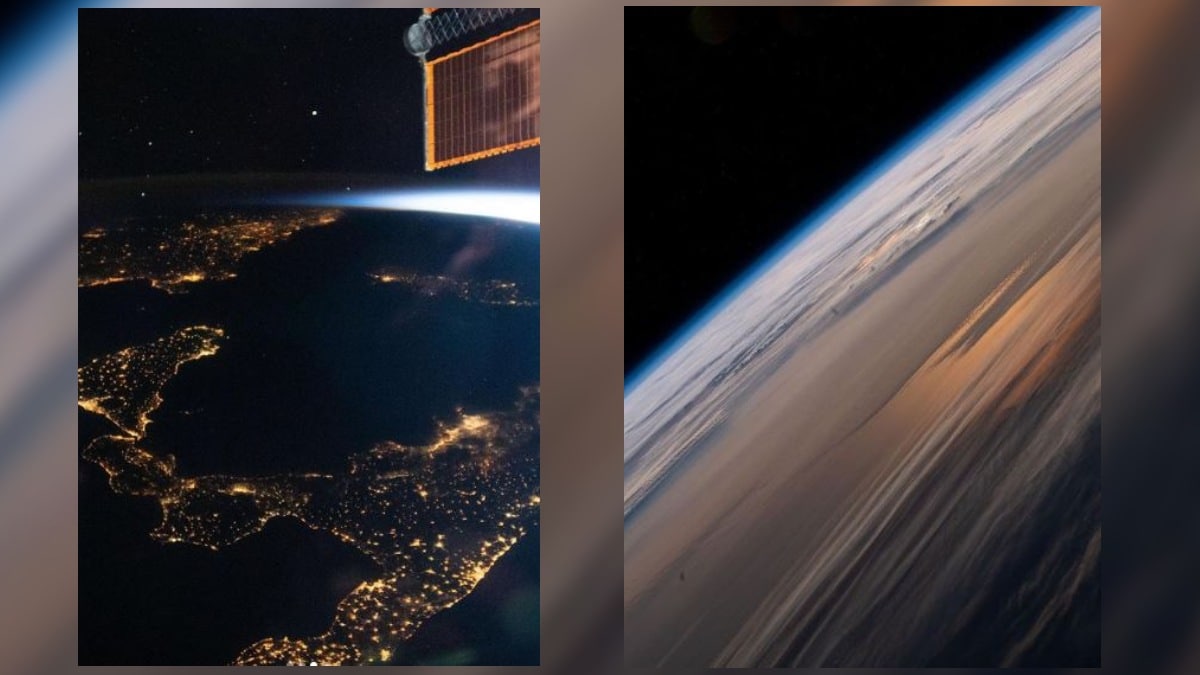International Space Station (ISS) has shared some spectacular photos of the Earth, captured by the astronauts stationed on it. In a new Instagram post, the ISS shared four different photos of “the Earth’s colours” — capturing our home planet “from the city lights to the hues of an orbital sunrise.” It also added “how vivid our planet is when pictured from the space station.”
So, what are the amazing sights in the newest set of photos from the space station? The first image is of Mauritius and Réunion Island on the Indian Ocean at night, with the glittering lights marking their boundaries in the dark sea.
In the second photo, we can see the Sun’s glint beaming off the Tasman Sea on the south-eastern coast of New South Wales, Australia.
The third is a breathtaking photograph of night lights of Italy during and orbital twilight, while the fourth shows captivating hues of an orbital sunrise in far easter Asia.
The ISS shared these pictures with 7.6 million of their Instagram followers. So far, over 257,000 people have liked the post.
While one user who goes by username im_not_jeremyshaffer requested ISS to never “stop sharing these photos because they are always fascinating, and give a few moments relief from everyday life,” another, who goes by the name jobbepilgaard felt it must be “surreal looking down on entire countries like that.”
A third user, jrenato, also wanted to know if the ISS had “any picture of the last lunar eclipse.”
In another post, the space station shared four photos of the lunar eclipse that had occurred on Wednesday. The ISS captioned the photo, “The Moon pictured during a lunar eclipse on Wednesday is seen from the space station as it orbited over 260 miles above the Earth.”
Not only does the ISS serve as a home to astronauts but is also a science laboratory. Several countries have worked together to build and use the space station. It is made of parts that were assembled in space by astronauts. The space station orbits the Earth at an average altitude of approximately 250 miles (402 kiometres), NASA says.
The US space agency is using the ISS to learn more about living and working in space and believes the lessons will make it possible to send humans farther into space than ever before.

